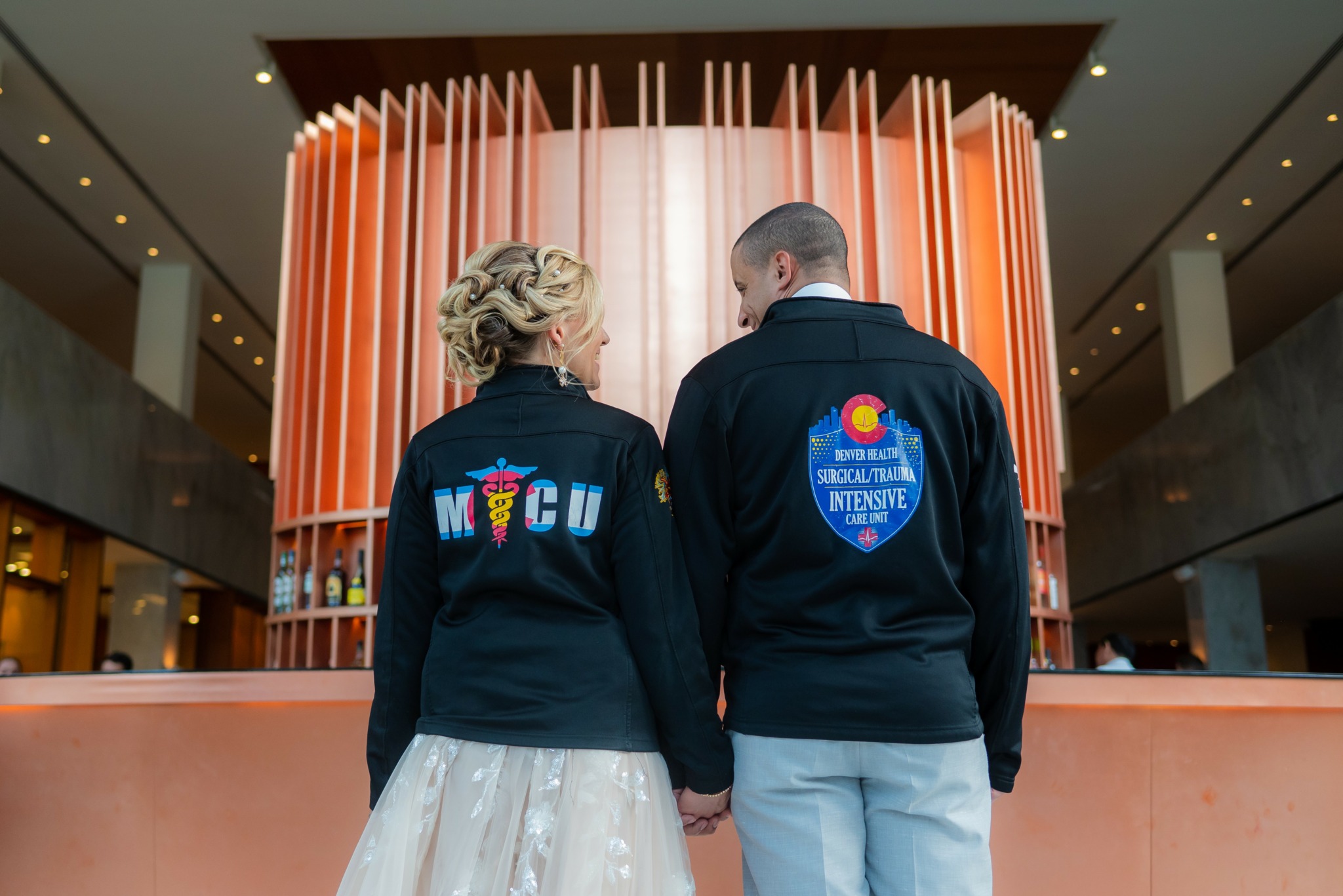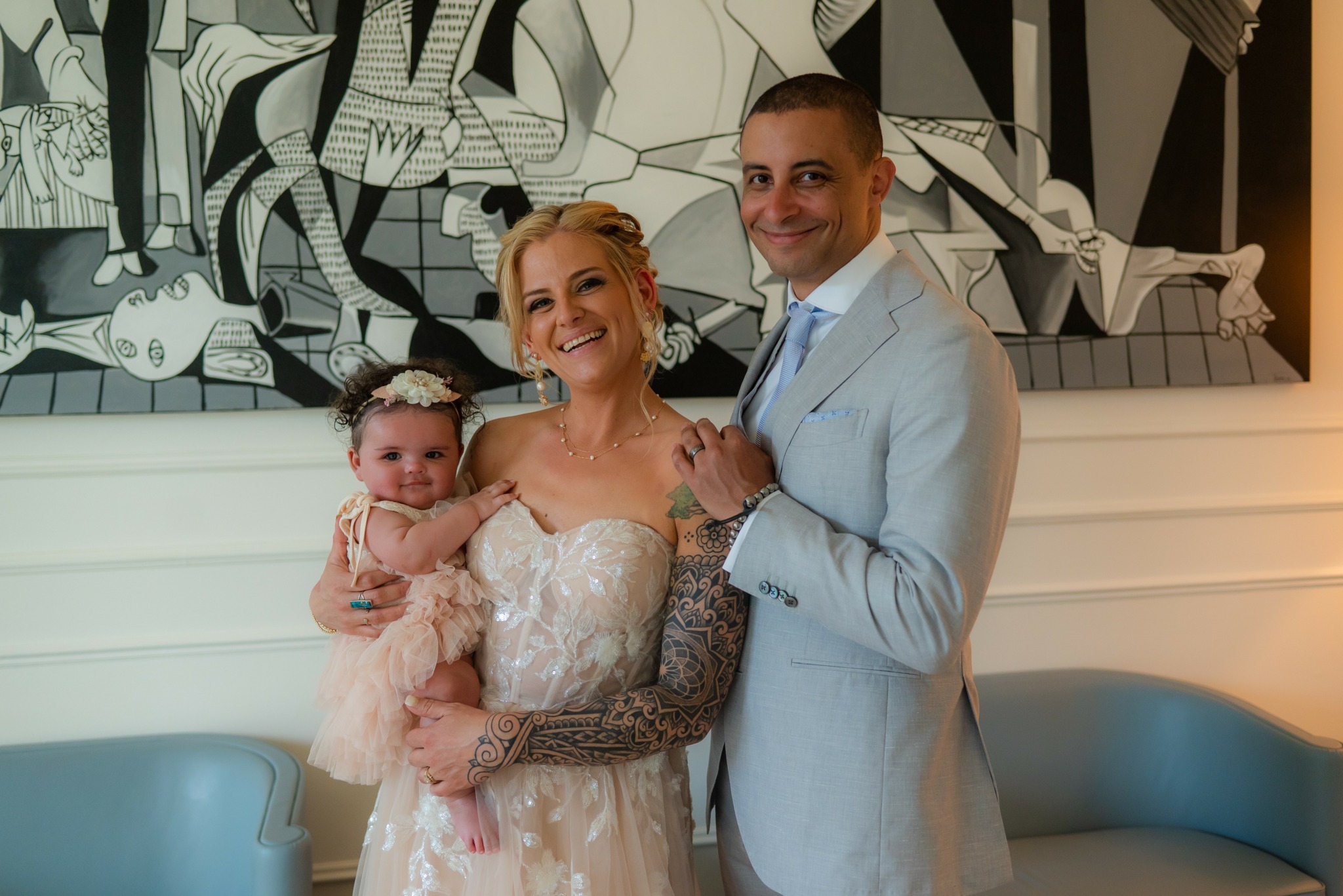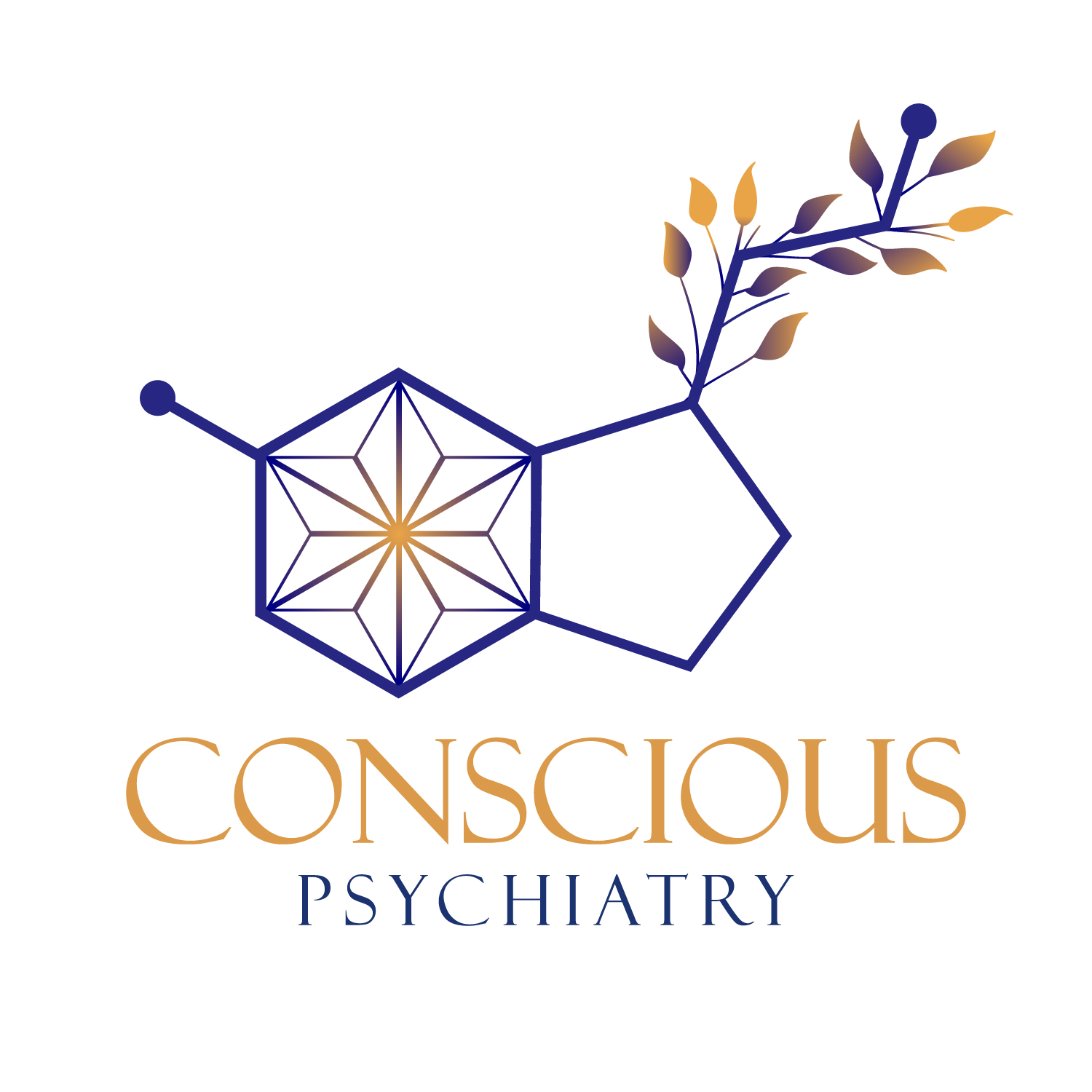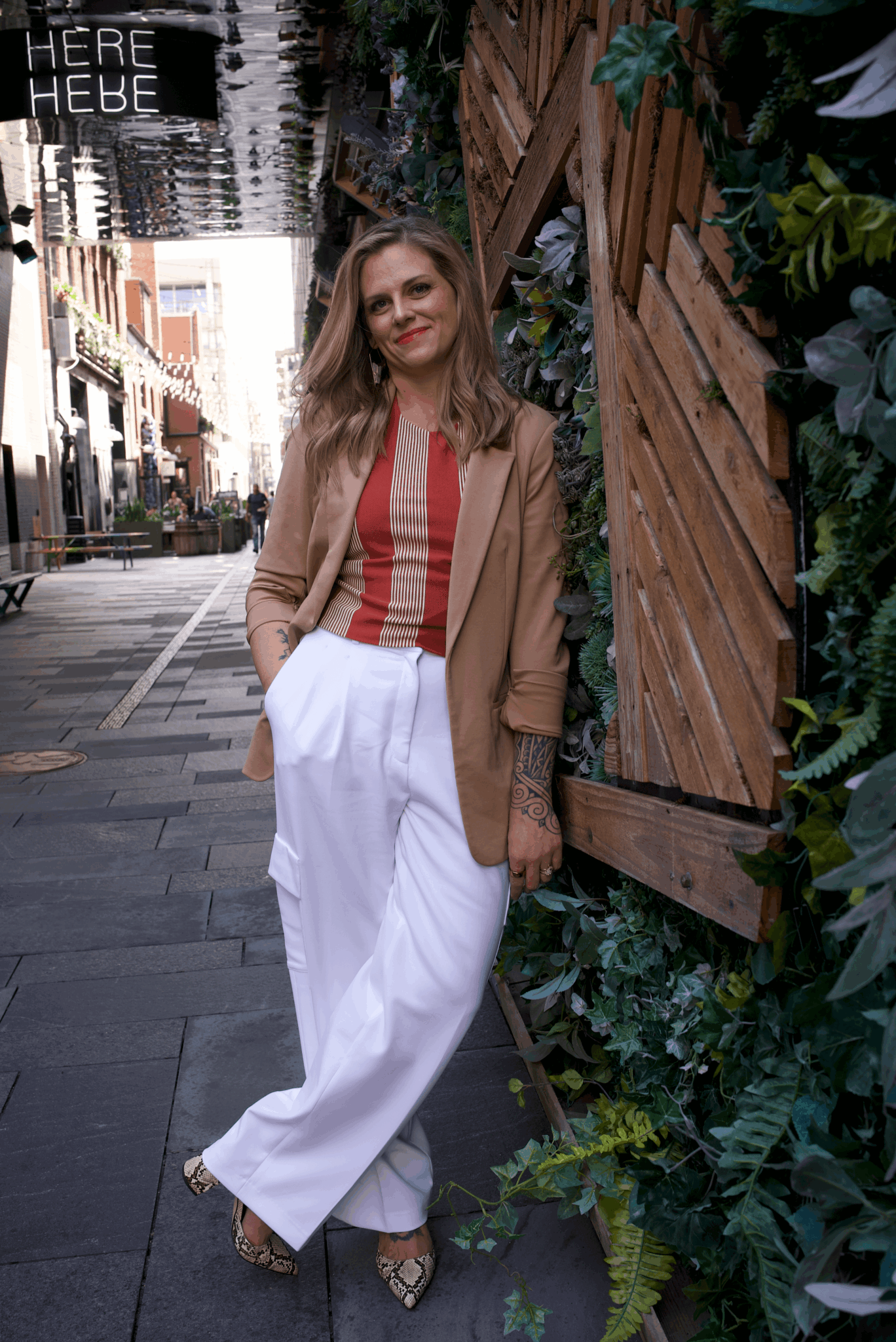Alright – so today we’ve got the honor of introducing you to Jordan Gough. We think you’ll enjoy our conversation, we’ve shared it below.
Jordan, thanks for joining us, excited to have you contributing your stories and insights. If you had a defining moment that you feel really changed the trajectory of your career, we’d love to hear the story and details.
Absolutely. I worked as an ICU nurse at Denver Health for years in medical, surgical, and pediatric ICUs. I loved it. I learned so much about the human body—how all the systems work together, and how nothing can be treated in isolation. I developed a deep understanding that you can’t truly help someone heal unless you’re thinking about the whole picture.
The job was intense but deeply meaningful. I witnessed people at their most raw and vulnerable, fighting for their lives, clinging to hope, and sometimes facing death. It reminded me of my earlier work as a birth and postpartum doula, being present as new life entered the world and witnessing the beauty and vulnerability of those first moments. In the ICU, I found myself holding space at the other end of that spectrum, offering care and presence as life sometimes came to a close. Both experiences were profoundly human, and both taught me how sacred it is to truly show up for someone in their most tender moments.
Then the pandemic hit. Everything changed. Suddenly we were reusing PPE that we would have never considered reusing before. We were scared. We were exhausted. I remember one shift in a makeshift COVID ICU overflow where we were coding patients with limited help, calling for doctors unfamiliar with that side of the hospital, and doing our best to keep people alive while their families said goodbye over Zoom. It was chaos, and it was heartbreaking.
In the middle of that, I had this overwhelming clarity: this is going to leave a mark. Not just on the healthcare system, but on the mental health of our communities—frontline workers, grieving families, isolated children. I knew we would need healing on a massive scale. So I went home that night and applied to Psych NP school.
I had already been thinking about it. Working in the ICU made it clear that so much of what we see physically has its roots in mental health. And working at Denver Health, a safety-net hospital serving underserved communities, I saw how socioeconomic status, trauma, and access to care shaped people’s health outcomes just as much as their lab results. I wanted to be part of treating the whole person, not just the diagnosis.

Jordan, love having you share your insights with us. Before we ask you more questions, maybe you can take a moment to introduce yourself to our readers who might have missed our earlier conversations?
I’m a psychiatric nurse practitioner and the founder of Conscious Psychiatry in Denver, CO. I provide evidence-based, personalized medication management with a special focus on women’s mental health. I work with people navigating anxiety, depression, ADHD, PMDD, perinatal mental health, and the often-overlooked struggles of perimenopause and menopause.
What sets my work apart is that I ask about the things that often get missed. I ask about menstrual cycles, sleep, irritability, brain fog, parenting stress, the impact of contraceptives, and executive functioning—areas that are often overlooked but deeply tied to mental health. I help patients track their symptoms and understand how their mental health is influenced by their hormones, their history, and their day-to-day lives. Many of the people I work with have been misdiagnosed, or just not given a full picture of what’s going on, because no one ever paused long enough to ask the right questions.
I’ve helped women realize their mood shifts weren’t bipolar disorder but were instead tied to hormone fluctuations. I’ve worked with people struggling with PMDD to find evidence-based treatment plans that help them reclaim their quality of life. I support patients during pregnancy and postpartum with clarity and compassion, helping them understand both the risks and benefits of medication so they can make informed decisions that feel right for them.
I also look at how ADHD symptoms shift across the menstrual cycle and adjust treatment accordingly—sometimes increasing stimulants during the luteal phase to match dopamine changes that come with hormone drops. I collaborate closely with therapists and refer to clinicians I trust. After each appointment, I update a patient’s therapist so we can work together in real time. I believe collaborative care leads to better outcomes and helps patients feel truly supported.
What I’m most proud of is that people leave their appointments feeling seen and understood. They don’t just get a prescription—they get a plan that honors who they are, what they’ve been through, and what they need to feel like themselves again.
Training and knowledge matter of course, but beyond that what do you think matters most in terms of succeeding in your field?
Listening. Deep, intentional listening. You can have all the clinical knowledge in the world, but if you don’t truly hear what someone is telling you—if you miss the patterns in their story, or the emotion behind their words—you’re going to miss what matters most.
Mental health is rarely isolated. It’s tangled up in people’s families, work lives, traumas, biology, hormones, and histories. You have to be curious, compassionate, and willing to sit in complexity. If you can listen well and hold space without judgment, you’ll earn trust. And that trust is where real healing starts.

We’d love to hear a story of resilience from your journey.
After I got into Psych NP school, I took a travel nursing assignment in a COVID ICU about an hour from home to save money for tuition. My husband and I were both working in critical care, both exhausted. Then I found out I was pregnant. It wasn’t planned, but it was deeply welcome. That news added a whole new layer of emotion—gratitude, fear, protectiveness—especially while working long shifts in a COVID ICU away from home.
That time in my life was incredibly difficult. I was commuting long hours, working in full PPE, and constantly worrying about keeping myself and my baby safe. I was away from my partner, surrounded by grief and uncertainty, and often felt completely drained. But I also found strength in the community of nurses around me. We looked out for each other, shared stories, checked in, and made each other laugh when we could. That support carried me.
It reminded me that resilience isn’t just about pushing through—it’s about remembering your purpose and leaning into the people who help you keep going. And it’s why I care so deeply about building the kind of mental healthcare that helps people feel like they don’t have to do it all alone.
Contact Info:
- Website: https://www.consciouspsychiatry.com



